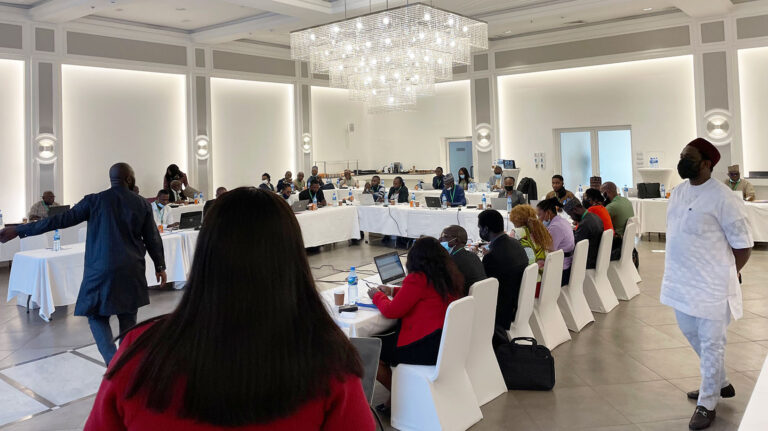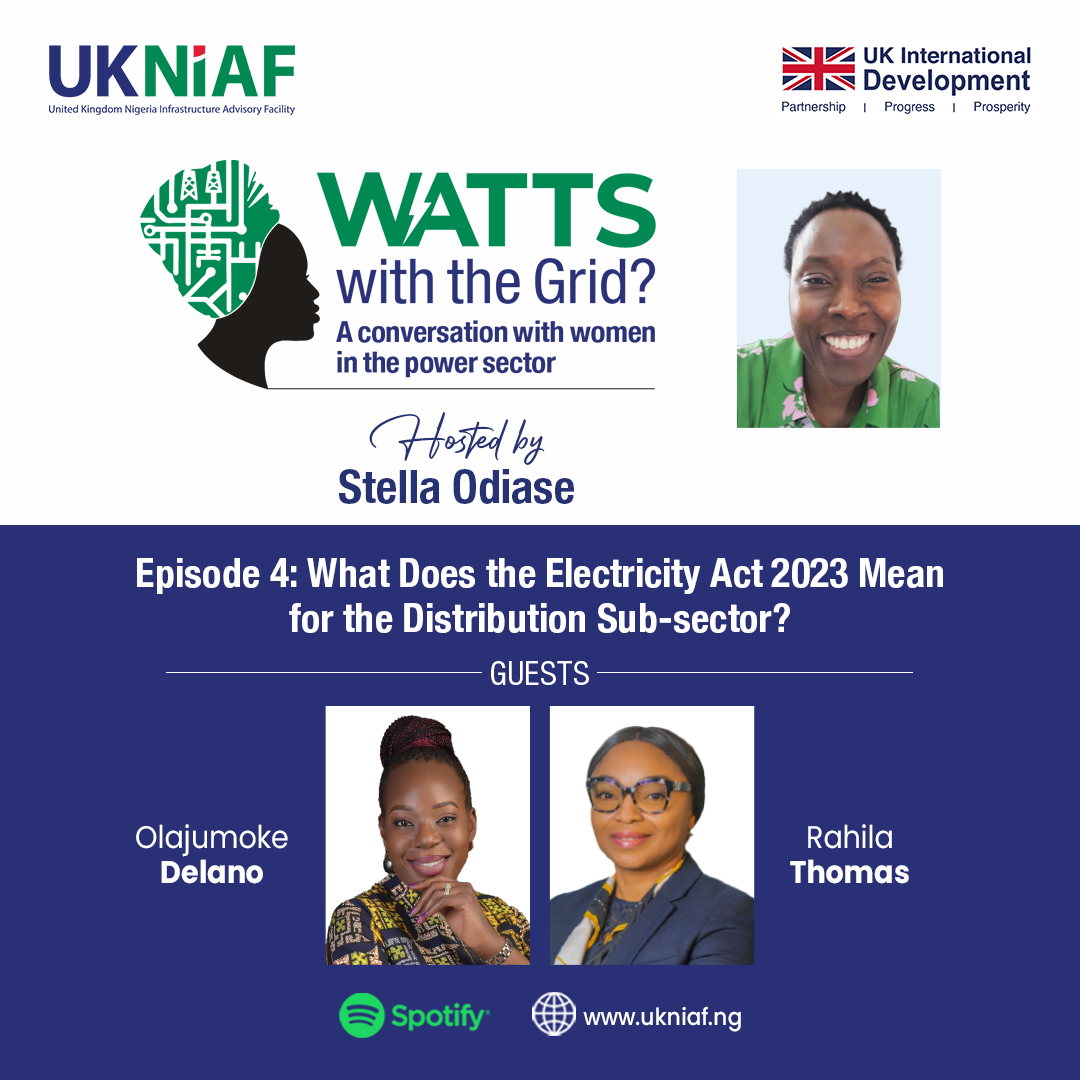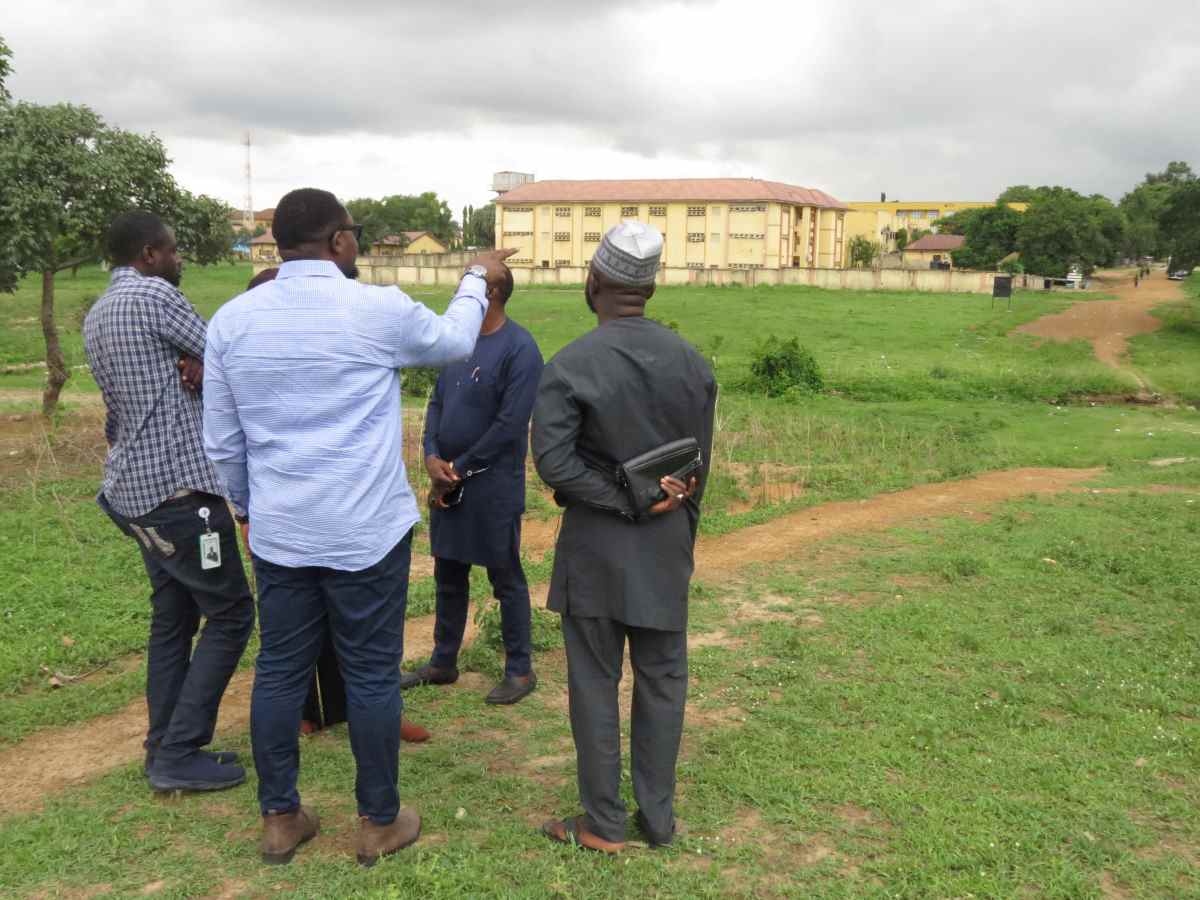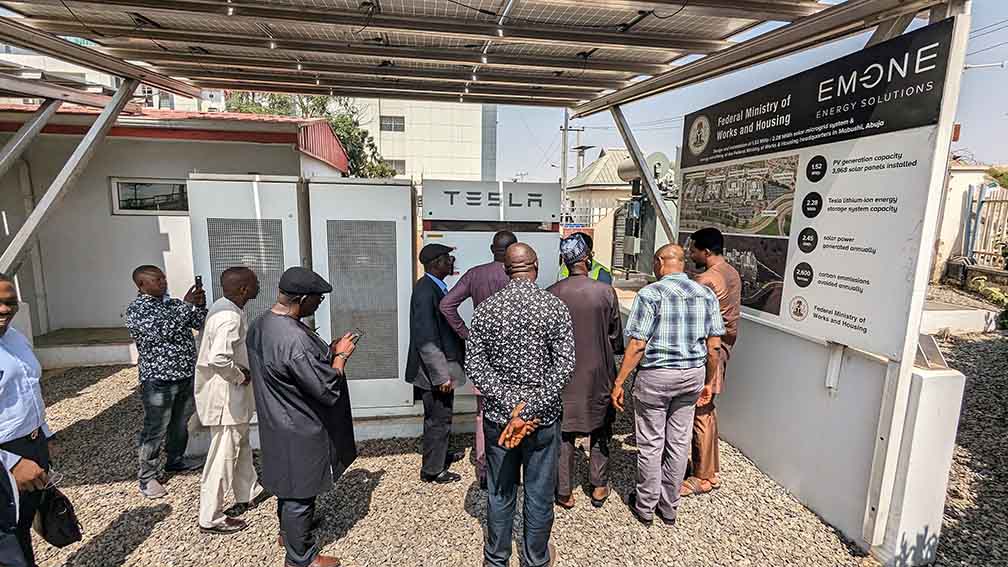A large portion of development work is focused on change; change in context, change in operations, change in behaviour. These changes don’t happen overnight, and in some cases, it can take a while to see results. But even small, incremental adjustments can be important early signs that positive change is happening.
In this series called “Stories of Change,” we share some examples of early indicators of change.
What happened?
UKNIAF created a Decision Support Tool (DST) to aid the Budget Office of the Federation (BoF) in the Federal Ministry of Finance, Budget, and National Planning. The tool assists government agencies prioritise climate-smart and financially viable infrastructure projects. The DST serves as a resource to evaluate and assess the feasibility of different projects, enabling agencies to make informed decisions about which initiatives to prioritize. By using this tool, the government can allocate resources effectively and focus on projects that align with climate-smart objectives while being financially sustainable.
Why does it matter?
It is challenging to prioritize budget allocations for competing capital projects, especially when they address different urgent development needs. However, the DST helps MDAs in assessing capital projects more effectively based on the priority development needs outlined in Nigerian government policies. Additionally, the tool incorporates screening criteria for Poverty, Gender, and Social Inclusion (PGESI). During the pilot phase with five MDAs, the screening process using the DST prioritized projects such as incorporating renewables into the energy mix, improving water access for irrigation, and developing storm and rainwater drainage. As the Budget Office of the Federation (BoF) expands the use of the DST, more MDAs are expected to adopt it for better project assessment and prioritization.

Who benefits?
As part of Nigeria’s efforts to integrate its commitment to the Nationally Determined Contributions (NDCs) into the Medium-Term National Development Plan (MTNDP), MDAs will use the DST during the annual budgeting process. The adoption of the DST by the BoF and other Ministries aligns with Nigeria’s NDC commitment and ensures that climate adaptation and mitigation considerations are incorporated into project design and planning, promoting a greener economy.
The timing of UKNIAF’s intervention is crucial as the opportunity to amend the MTNDP arises every 3-5 years. By providing support during this window, UKNIAF ensures that the BoF operates within the strategic framework parameters of the MTNDP. This alignment avoids potential difficulties that may arise from acting outside the established regulatory and institutional framework. UKNIAF’s intervention has contributed to the proper sequencing and alignment of policy formulation processes within the existing framework
What did UKNIAF do that made the difference?
UKNIAF produced a policy paper proposing mainstreaming the NDCs in the MTNDP, as well as a central database of infrastructure projects to be screened for PPPs and climate financing opportunities using the DST.
We built institutional capacity within the BoF and relevant MDAs to use the DST supporting the piloting of the DST as part of the 2023 capital budget process. A total of 1848 budget lines were assessed across the five MDAs resulting in approximately 61% (881 projects) of budget being allocated to NDC aligned projects. 860 (97.96%) of the 881 projects from these MDAs were submitted for 2023 appropriation. The MDAs that participated in the pilot have a better understanding of the Green Bond eligibility criteria and how to integrate it into their screening process. This increased awareness will expand the potential projects submitted to the Green Bond scheme for funding.
UKNIAF funded the provision of the climate expertise required to conceptualise and structure projects qualifying for climate funding. This expertise was not available at that time within the public sector.
UKNIAF collaborated with the NDC Partnership, to draft and ensure the inclusion of policy statements that set out a clear commitment towards the NDC mainstreaming in the annual budget. UKNIAF leveraged their established relationship with the Ministry of Environment, shared learnings and held workshops with MDAs aimed at creating awareness of improved access to finance through NDC alignment.
What lessons can we draw from this?
- Reform requires a good understanding of and alignment with the existing institutional and regulatory framework:
The alignment of the strategic policy framework (MTNDP) with the annual planning and budgeting framework increases the likelihood of spending on NDCs priorities. - A strong and committed political leadership is critical:
The President and Vice President of Nigeria showed keen interest in the work and mobilised management in the Ministry and the Budget Office to deliver this result. - Framing the communication with lower-level officials is key:
In building capacity, we emphasized how the tool would improve access to finance for critical projects that would otherwise be unfunded given the country’s fiscal challenges. This framing allowed the officials to see the direct benefit rather than placing the debate within a more remote, global agenda. - Cooperation between ministries is vital:
The leadership of the Ministry of Environment was critical in placing climate on Nigeria’s agenda, but traction was only possible with the Ministry of Finance directing MDAs to prioritise projects using the DST.















